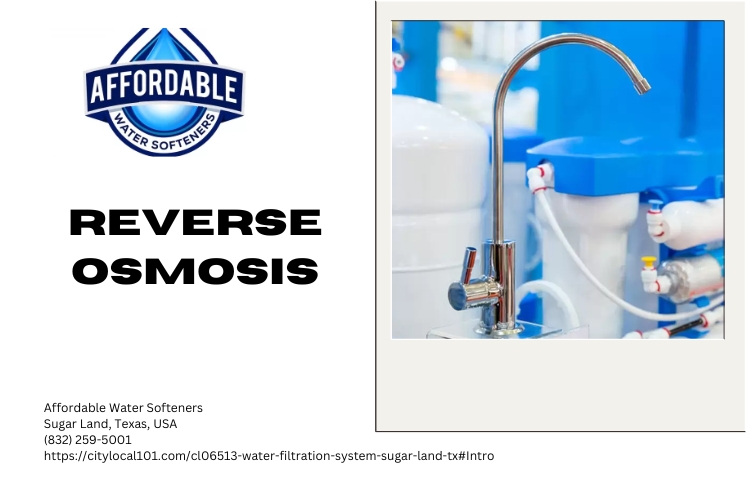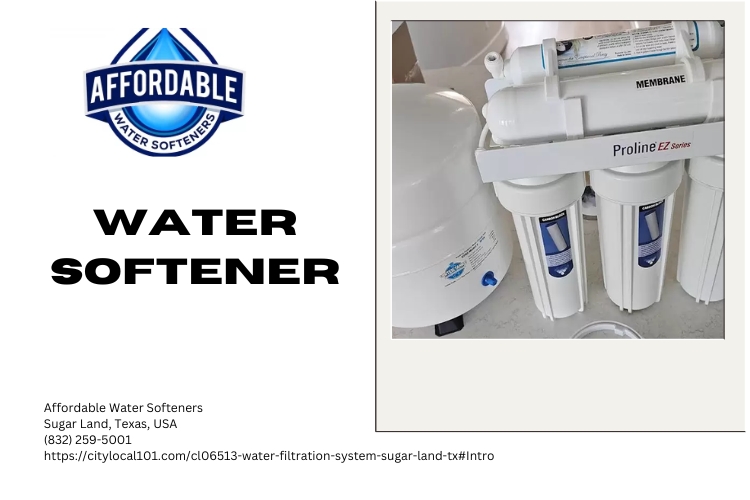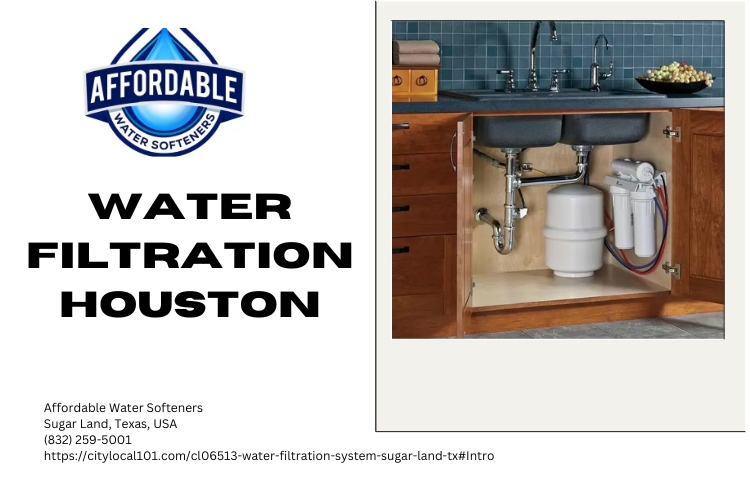Introduction
When it comes to ensuring the health and safety of your family, clean water is non-negotiable. In Sugar Land, Texas, the quality of your drinking water can vary significantly due to various factors such as municipal supply issues, natural contaminants, and even plumbing systems. This necessitates a reliable water filtration system. But with numerous options available in the market—like reverse osmosis systems, water softeners, and whole-house filters—how do you choose the best one for your home?
In this comprehensive guide, we will walk you through everything you need to know about selecting the right water filtration system tailored specifically for your Sugar Land residence.

Understanding Water Quality in Sugar Land
What Are Common Contaminants Found in Sugar Land Water?
Before diving into filtration options, it's crucial to understand what you're dealing with. Common contaminants found in Sugar Land’s Water softener water supply include:
- Chlorine: Often added to disinfect the water but can lead to an unpleasant taste. Lead: Can leach from old pipes and pose serious health risks. Bacteria and Viruses: Although treated, occasional contamination can occur. Hard Water Minerals: High levels of calcium and magnesium can cause scale buildup.
How Is Water Tested?
Testing your water is a simple yet effective way to determine what contaminants are present. You can use home testing kits or hire professionals for more comprehensive analysis.
- Home Testing Kits: These are user-friendly; simply collect a sample and send it off for lab analysis. Professional Testing Services: For a thorough evaluation, consider hiring a local expert.
The Complete Guide to Choosing the Best Water Filtration System for Your Sugar Land Home
Types of Water Filtration Systems Available
1. Reverse Osmosis Systems
Reverse osmosis (RO) systems use a semi-permeable membrane to remove impurities from water. Here’s why they might be suitable for your home:
- Highly Effective: Removes up to 99% of contaminants. Space Efficient: Most units fit conveniently under sinks.
Key Components of RO Systems:

- Pre-filters RO membrane Post-filters
2. Water Softeners
Water softeners tackle hard water by replacing calcium and magnesium ions with sodium or potassium ions.
Benefits of Using a Water Softener:
- Reduces scale buildup in plumbing. Improves soap efficiency which can lower your cleaning costs.
3. Whole-House Filtration Systems
These systems filter all the water entering your home, providing cleaner water for drinking, cooking, bathing, and laundry.
Advantages:
- Comprehensive filtration Convenience—no need for multiple point-of-use filters
Key Features to Consider When Choosing a System
1. Filtration Capacity
How much water do you need filtered daily? Knowing this helps you choose a system that meets your household's needs without overwhelming it.
2. Maintenance Requirements
Some systems require more upkeep than others. For example:
| Filter Type | Maintenance Frequency | |---------------------|-----------------------| | Reverse Osmosis | Every 6 months | | Water Softener | Annually | | Whole-House Filter | Every 3–6 months |
3. Budget Considerations
Investing in a quality filtration system may seem like a hefty upfront cost but consider long-term savings on bottled water and plumbing repairs due to hard water damage.
Installation Options: DIY vs Professional Help
Are DIY Installations Viable?
If you’re handy around the house, some simpler systems like countertop filters or under-sink RO units can be installed without professional help.
When Should You Hire Professionals?
Complex installations—especially whole-house systems—are best left to experts who understand local plumbing codes and regulations.
Frequently Asked Questions (FAQs)
1. What is the best type of filtration system for removing lead?
Answer: Reverse osmosis systems are highly effective at removing lead from drinking water due to their multi-stage filtration process.
2. Do I need both a water softener and a reverse osmosis system?
Answer: It depends on your specific needs; if you have hard water issues along with contaminants requiring removal, using both may provide optimal results.
3. How often should I replace my RO membrane?
Answer: Typically every 2–5 years based on usage; consult your manufacturer's guidelines for specifics.
4. Can I install a whole-house filter myself?
Answer: While some may attempt DIY installation, it's often safer and more efficient to hire professionals due to plumbing complexities involved.
5. What size system do I need for my family?
Answer: This varies based on household size; generally speaking, larger families will require higher capacity filters or multiple units working together.
6. Will using a water softener affect my drinking water quality?
Answer: Generally no; however, be mindful that softened water contains sodium which may not be suitable for certain diets.
Conclusion
Choosing the best water filtration system for your Sugar Land home doesn't have to be overwhelming or confusing! By understanding local contaminant concerns, assessing your household's unique needs—including whether you require reverse osmosis or a traditional water softener—you'll make an informed decision that keeps your family's health as top priority!
Contact us:
Affordable Water Softeners
Sugar Land, Texas, USA
Phone: (832) 259-5001
Website: https://citylocal101.com/cl06513-water-filtration-system-sugar-land-tx#Intro
